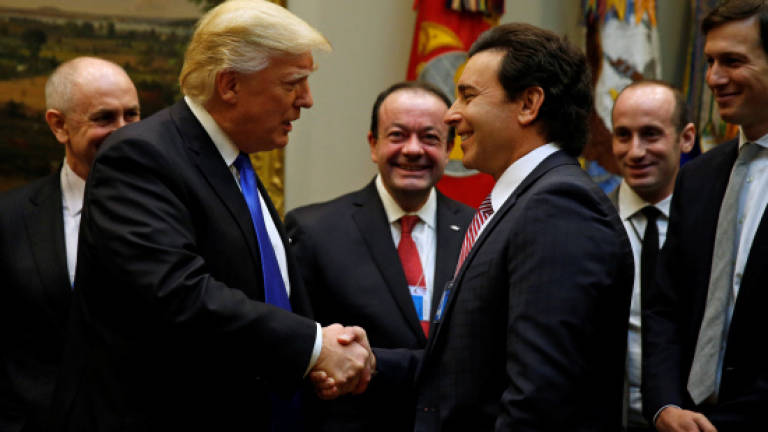Trump dumps TPPA

WASHINGTON: President Donald Trump pulled the United States out of a major Pacific trade deal on Monday, making good on an election campaign promise and delivering a blow to Asian allies.
Trump said he had "terminated" the Trans-Pacific Partnership Agreement (TPPA) – a trade deal binding the United States, Australia, Canada, Japan, Vietnam and seven other allies against growing Chinese economic clout.
Together, TPPA members represent 40% of the world economy.
After signing an executive order, Trump said he would be "going back to those countries one-on-one" to find terms more favorable to the United States.
"We are going to have trade but we are going to have one-on-one," he said.
"And if somebody misbehaves, we are going to send a letter of termination – 30 days and they'll either straighten it out or we are gone."
Trump came to office promising to gut existing trade pacts and reclaim manufacturing jobs lost overseas.
He has also vowed to renegotiate the North American Free Trade Agreement with Mexico and Canada.
Economists warn those jobs are never coming back and point to automation, not trade, as the main reason.
But Trump has sought to tap populist anger and argued for much more transactional trade deals, regardless of the impact on international norms and standards.
According to a Peterson Institute analysis, the United States stood to be the biggest beneficiary from TPPA, with an annual increase in exports of US$357 billion (RM1.58 trillion).
The Institute also projected the pact would be broadly neutral for employment levels.
President Barack Obama's administration had also touted the deal as a strategic counterweight to China.
Trump's Republican ally John McCain described the new president's decision as a "serious mistake that will have lasting consequences for America's economy and our strategic position in the Asia-Pacific region."
"It will create an opening for China to rewrite the economic rules of the road at the expense of American workers. And it will send a troubling signal of American disengagement in the Asia-Pacific region at a time we can least afford it."
It remains unclear if countries that have spent years negotiating the TPP would be willing to enter new talks. — AFP